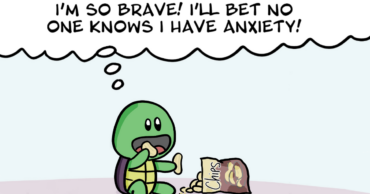The wedding day is one of the most important days in people’s lives. So it’s no surprise that they want everything to go smoothly; hence the months of preparation, arrangements, and worrying.
For this bride-to-be, one of the main wedding-related worries was the guestlist; and whether or not her cousin should be on it. Opening up to the ‘AITAH’ community, she shared that her disabled cousin consistently crosses physical boundaries, which makes her uncomfortable, and she doesn’t want to be on edge during her big day. Her family, however, believed that not inviting him would be unfair and cruel.
Most couples want their wedding day to be perfect

Image credits: freepic.diller / Freepik (not the actual photo)
This bride-to-be was worried that having her disabled cousin at her wedding would keep her on edge





Image credits: freepik / Freepik (not the actual photo)





Image credits: freepik / Freepik (not the actual photo)





Image credits: JumpyThrowRA

Image credits: Polesie Toys / Pexels (not the actual photo)
Working on understanding boundaries is imperative for people with developmental disabilities
With approximately 317 million children and adolescents with health conditions that contribute to developmental disabilities globally, not to mention the number of adults living with such a disability, it’s safe to assume that the OP’s family is not the only one having to navigate situations similar to the one the redditor found herself in.
For people with intellectual and developmental disabilities, also known as IDDs, it might be difficult to draw the line between behavior that is considered “appropriate” and overstepping someone’s boundaries. However, sources suggest that it’s important to work with developmentally disabled people towards a better understanding of boundaries, not only for the sake of those around them, but also for their own well-being.
According to Community Mainstreaming (CMA), an organization that provides personalized services to help maximize the independence of people with intellectual and developmental disabilities in their homes and communities, it’s critical to teach them about social boundaries. The organization notes that lack of awareness regarding said boundaries can negatively impact their social skills, which in turn might lead to a decreased level of self esteem, social withdrawal, and feelings of alienation.

Image credits: Antoni Shkraba / Pexels (not the actual photo)
It’s important that people with developmental disabilities understand boundaries for the sake of both themselves and those around them
CMA suggests that role playing or acting out common scenarios and conversations can be a great way to introduce social boundaries to someone with an IDD. (Nowadays, there is even a game dedicated to exactly that.) The organization also emphasizes that when talking on the topic, it’s imperative to discuss boundaries regarding touching, pointing out that touching another person differs depending on who the person is. “For example, the way you would touch your best friend may be different than the way you would physically engage with a stranger,” CMA notes.
Moreover, it’s important to emphasize that physical contact is only appropriate when both of the involved people choose to be touched. Making sure your loved one with an IDD knows that can not only help avoid uncomfortable situations (like the ones the OP finds herself in when approached by her cousin), but also help ensure that they are aware of what is considered inappropriate when someone else approaches them, and that they can inform a trusted adult if they feel that something is wrong.
CMA notes that by teaching social and sexual boundaries to loved ones with IDD, people can help them be safe, healthy and respectful to others. Yet unfortunately, the OP didn’t feel safe around her cousin; and the last thing she wanted was to feel on edge during her big day. The majority of fellow netizens didn’t think that that made her a jerk.
The OP shared some more details in the comments






Many netizens didn’t think the bride-to-be was a jerk in the situation










Some people believed that everyone was to blame here, at least to some extent


 Follow Us
Follow Us





